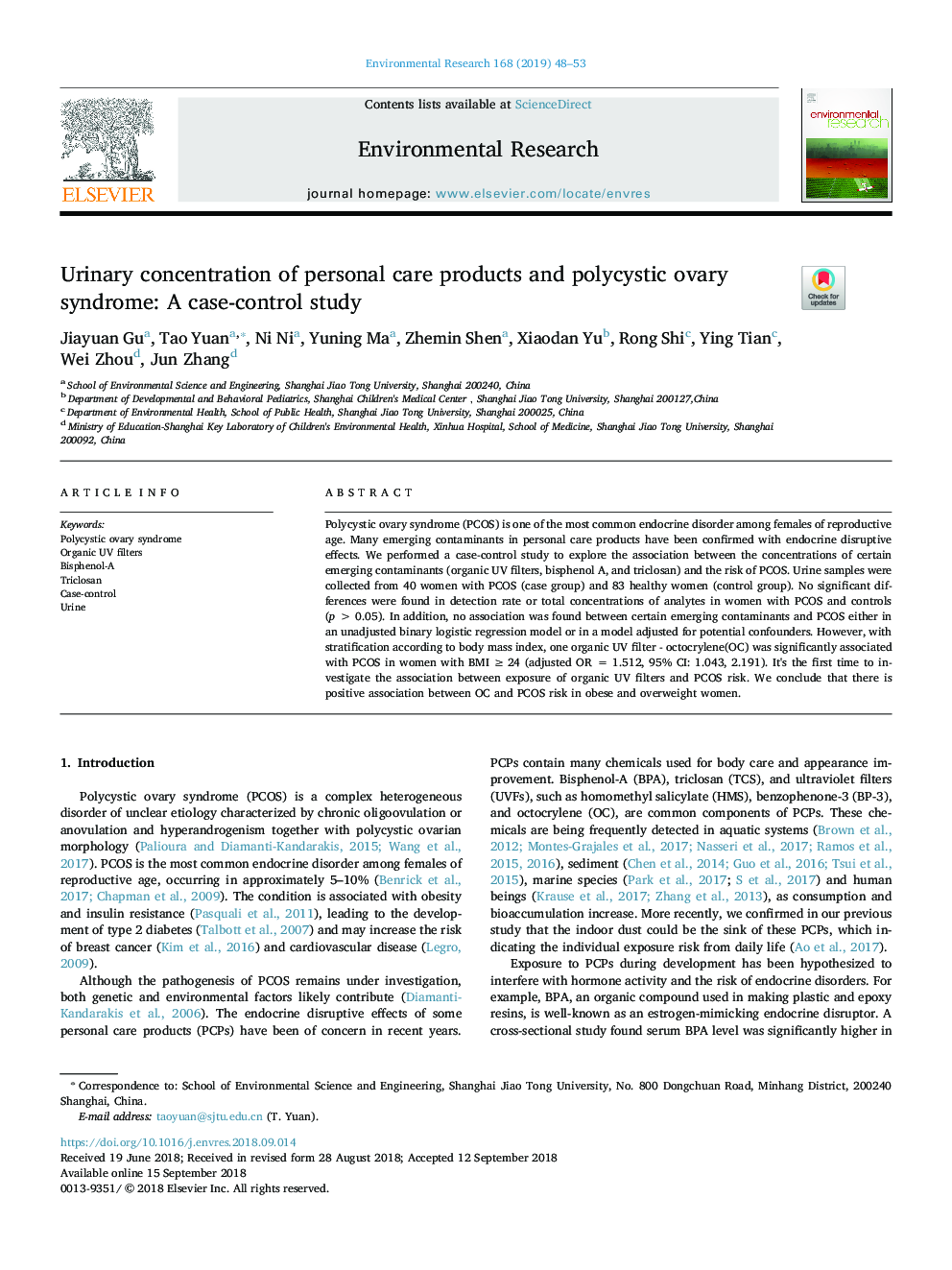| Article ID | Journal | Published Year | Pages | File Type |
|---|---|---|---|---|
| 10223640 | Environmental Research | 2019 | 6 Pages |
Abstract
Polycystic ovary syndrome (PCOS) is one of the most common endocrine disorder among females of reproductive age. Many emerging contaminants in personal care products have been confirmed with endocrine disruptive effects. We performed a case-control study to explore the association between the concentrations of certain emerging contaminants (organic UV filters, bisphenol A, and triclosan) and the risk of PCOS. Urine samples were collected from 40 women with PCOS (case group) and 83 healthy women (control group). No significant differences were found in detection rate or total concentrations of analytes in women with PCOS and controls (pâ¯>â¯0.05). In addition, no association was found between certain emerging contaminants and PCOS either in an unadjusted binary logistic regression model or in a model adjusted for potential confounders. However, with stratification according to body mass index, one organic UV filter - octocrylene(OC) was significantly associated with PCOS in women with BMI â¥â¯24 (adjusted OR = 1.512, 95% CI: 1.043, 2.191). It's the first time to investigate the association between exposure of organic UV filters and PCOS risk. We conclude that there is positive association between OC and PCOS risk in obese and overweight women.
Related Topics
Life Sciences
Environmental Science
Health, Toxicology and Mutagenesis
Authors
Jiayuan Gu, Tao Yuan, Ni Ni, Yuning Ma, Zhemin Shen, Xiaodan Yu, Rong Shi, Ying Tian, Wei Zhou, Jun Zhang,
